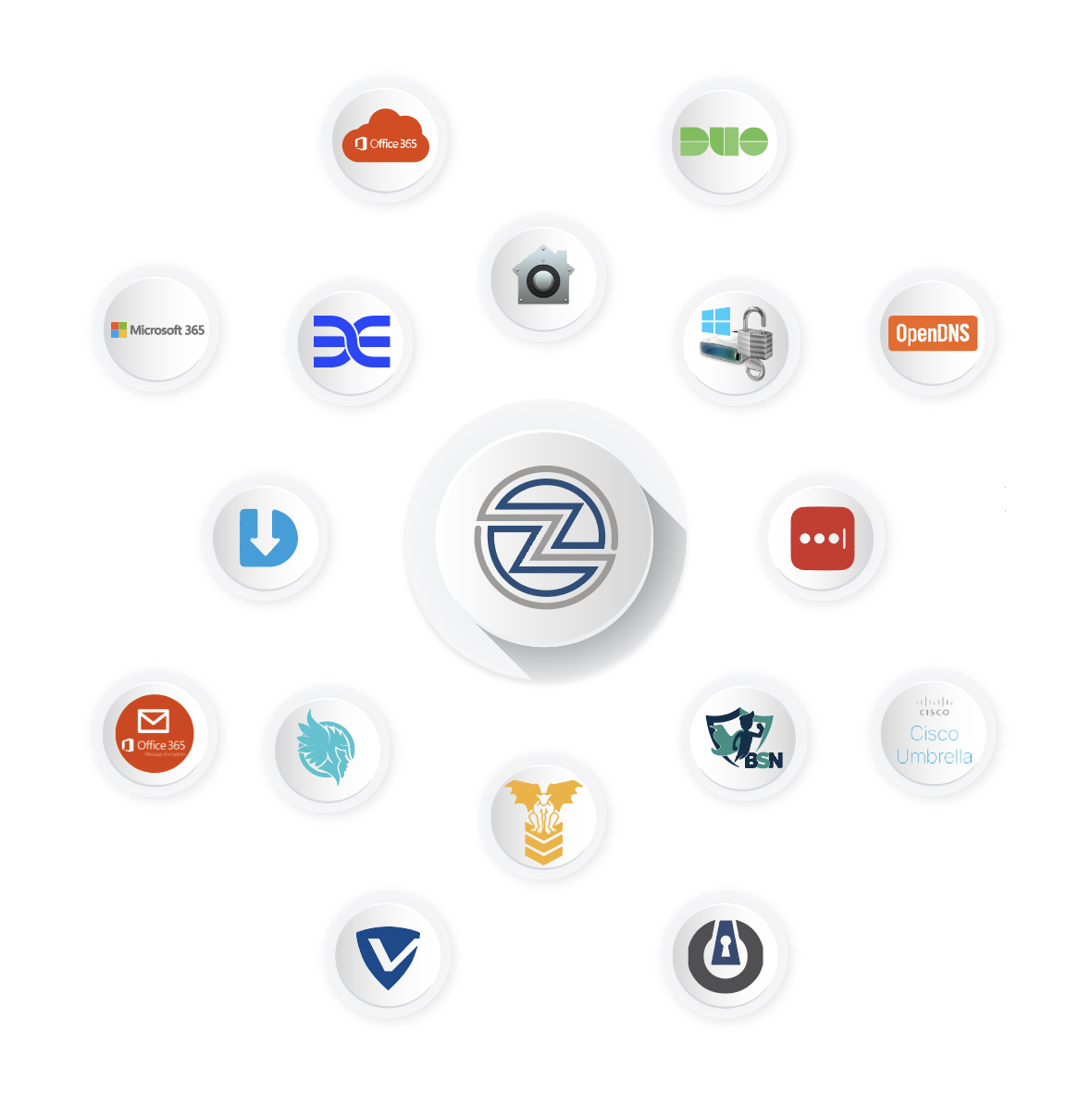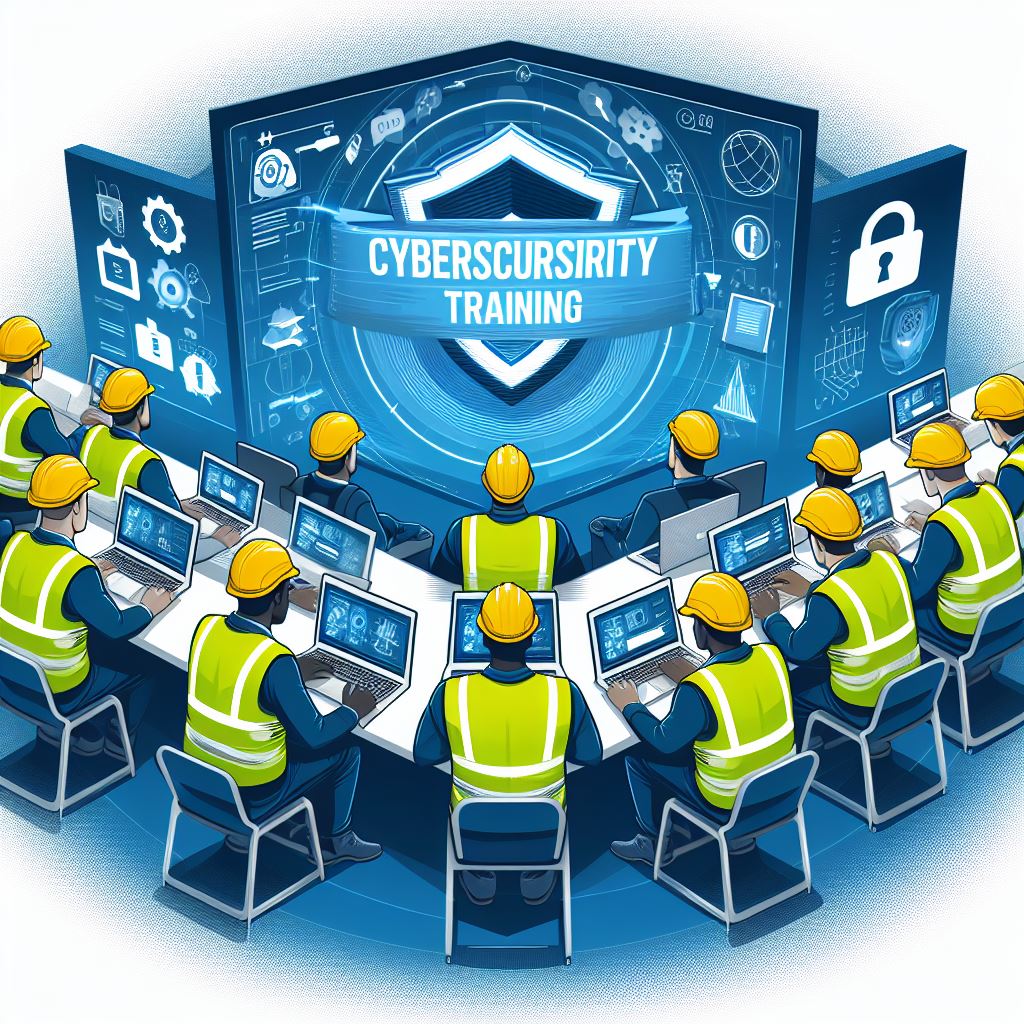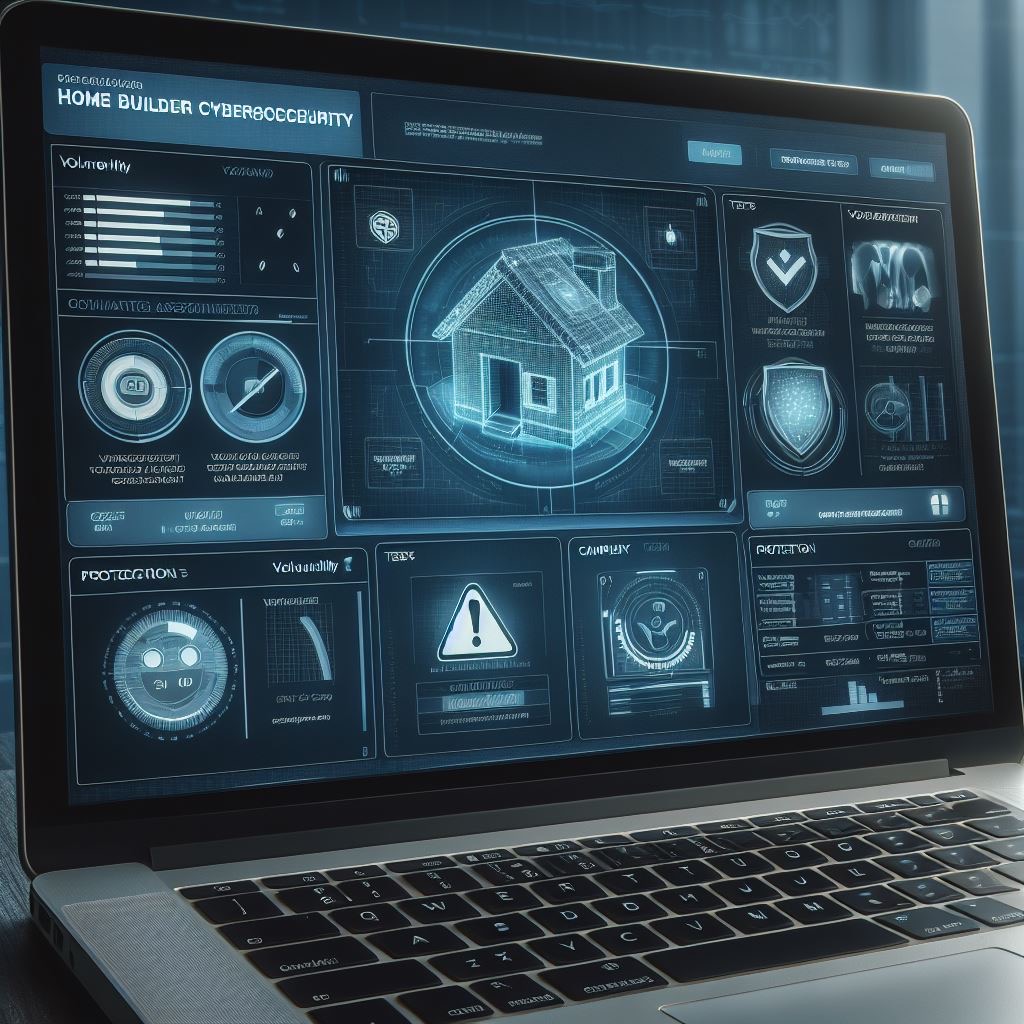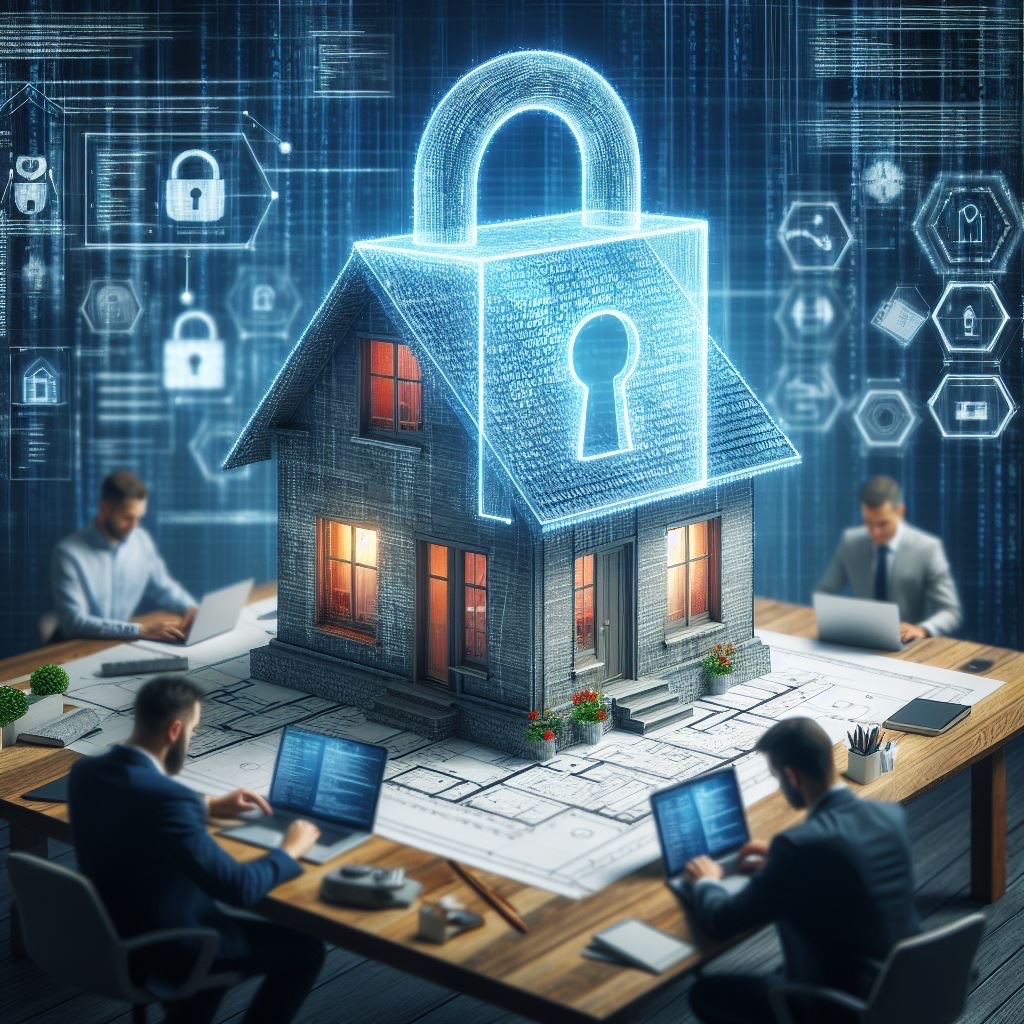
Defying All Odds - Day 21: Third-Party Risk Management in the Construction Industry: A Cybersecurity Perspective
“You have to be prepared to fight and finish your own battles.” - Jim Harbaugh
Introduction:
Third-party vendors and partners often have access to sensitive information and systems within the construction industry, making third-party risk management a critical cybersecurity consideration. In this article, we will discuss the importance of third-party risk management in the construction industry and explore best practices for mitigating third-party cyber risks. From conducting due diligence to implementing contractual safeguards, construction companies can proactively manage third-party risks and protect their information assets from potential breaches.
In our featured story, we talked about how ZATIS helped a construction company defy the odds and win in the battle against hackers and cybercriminals. Join us today as we discuss the importance of managing the cybersecurity risks involving third-party vendors of a construction company.

In the thrilling world of college football, understanding the strengths and weaknesses of your opponents is crucial to defying all odds and securing victory. Similarly, in the construction industry, understanding the cybersecurity posture of your third-party vendors is essential to mitigating potential risks and ensuring the security of your sensitive information.
Understanding Third-Party Risks
Third-party vendors often have access to sensitive data and systems within your organization. If these vendors do not have robust cybersecurity measures in place, they can become the weakest link in your security chain, exposing your organization to potential breaches and cyberattacks.
Mitigating Third-Party Risks
Just as a football team analyzes its opponents to develop a winning strategy, construction companies must conduct thorough third-party risk assessments.
1. Conduct Due Diligence:

Before engaging with a third-party vendor, perform a comprehensive review of their cybersecurity measures. This involves understanding their security policies, procedures, and controls and ensuring they align with your organization's cybersecurity standards.
2. Implement Contractual Safeguards:

Include specific clauses in your contracts to ensure vendors adhere to your cybersecurity requirements. This may involve compliance with certain security standards, reporting of security incidents, and regular security audits.
3. Regular Monitoring and Audits:

Continually monitor your vendors' cybersecurity practices and conduct regular audits to ensure compliance with your security standards. Just as a coach reviews game footage to assess performance, regular audits will help you identify and address any security gaps.
4. Incident Response Planning:

Ensure your vendors have incident response plans in place and that these plans align with your own response strategies. In the event of a breach, you need to be able to coordinate effectively to minimize damage.
5. Cybersecurity Training and Awareness:

Promote cybersecurity awareness among your vendors. Offer training sessions to ensure they understand the potential risks and the importance of adhering to security protocols.
6. Vendor Risk Management Software:

Consider implementing a vendor risk management software to streamline and automate the risk assessment process. This can help you manage multiple vendors more efficiently. As in any competitive sport, the key to success lies in preparation and strategic planning. By understanding your third-party risks and implementing robust risk management practices, you can protect your organization from potential cyber threats and breaches. In the world of cybersecurity, the victors are those who are prepared, vigilant, and proactive. With the right strategies and tools in place, you can manage third-party risks effectively and ensure the security of your information assets. So, gear up, strategize, and get ready to defy the odds in the digital arena.

The Importance of Proactive Cybersecurity Measures
To mitigate the risks associated with cyber threats, construction companies must adopt a proactive approach to cybersecurity. Implementing robust cybersecurity measures can help protect the company's assets, maintain client trust, and ensure the smooth operation of projects. Here are some key steps that construction companies can take:
1. Employee Education and Training:

Employees are often the first line of defense against cyber threats. Providing comprehensive training on cybersecurity best practices, such as identifying phishing emails and using strong passwords, can significantly reduce the risk of successful attacks.
2. Regular Security Assessments:

Conducting regular security assessments, including vulnerability scanning and penetration testing, can identify potential weaknesses in the company's systems and infrastructure. This allows for timely remediation before cybercriminals can exploit these vulnerabilities.
3. Secure Network Infrastructure:

Implementing robust firewalls, intrusion detection systems, and encryption protocols can help safeguard the company's network infrastructure from unauthorized access and data breaches.
4. Access Control and Authentication:

Implementing strong access control measures, such as multi-factor authentication and role-based access controls, can ensure that only authorized individuals have access to sensitive information.
5. Data Backup and Recovery:

Regularly backing up critical data and implementing a robust disaster recovery plan can help minimize the impact of a cyber-attack and facilitate the restoration of operations.
Conclusion:
In an increasingly digitized world, the construction industry must recognize the importance of cybersecurity and take proactive measures to protect its valuable assets. Neglecting cybersecurity can have severe consequences, including financial losses, reputational damage, project delays, legal and regulatory compliance issues, and loss of intellectual property. By prioritizing cybersecurity and implementing robust measures, construction companies can safeguard their operations, maintain client trust, and ensure their long-term success in an evolving digital landscape.
Want to know if your construction company is at major risk of getting hacked? Click here for a FREE 15-Minute Cyber Consult.

5 Reasons Your Construction Company Needs a Cybersecurity Risk Assessment. 👊
It is important for construction companies to conduct a cybersecurity risk assessment for several reasons:
1. Protection of sensitive data:
Construction companies handle a vast amount of sensitive data, including financial information, project details, client information, and employee records. Conducting a cybersecurity risk assessment helps identify potential vulnerabilities and ensures appropriate safeguards are in place to protect this data from unauthorized access, data breaches, or theft.
2. Mitigating financial losses:
Cyberattacks can result in significant financial losses for construction companies. These losses can stem from data breaches, ransomware attacks, or the disruption of critical systems. By conducting a cybersecurity risk assessment, companies can identify potential weaknesses in their IT infrastructure and take proactive measures to mitigate the financial risks associated with cyber threats.
3. Maintaining business continuity:
A successful cyber-attack can disrupt construction projects, delay timelines, and impact the overall business operations. By conducting a risk assessment, construction companies can identify potential vulnerabilities and implement robust cybersecurity measures to ensure business continuity. This includes having backup systems, disaster recovery plans, and incident response protocols in place.
4. Protecting reputation and client trust:
Construction companies rely on their reputation and client trust to secure new projects and contracts. A cybersecurity breach can undermine trust, damage the company's reputation, and lead to the loss of clients. By conducting a risk assessment and implementing appropriate cybersecurity measures, construction companies can demonstrate their commitment to protecting client data and maintaining a secure operating environment.
5. Compliance with regulations:
Construction companies may be subject to industry-specific regulations and legal requirements regarding data protection and cybersecurity. Conducting a risk assessment helps identify any gaps in compliance and ensures that the company meets the necessary regulatory obligations.
Overall, conducting a cybersecurity risk assessment allows construction companies to proactively identify and address potential vulnerabilities, protect sensitive data, mitigate financial losses, maintain business continuity, protect their reputation, and comply with relevant regulations.
Other resources to help you get started with Cybersecurity
Start your own Cybersecurity initiative:
Here is a quick checklist to get you started with your Cybersecurity initiative. Remember imperfect action beats inaction, get started and keep pushing for progress and awareness with your people.
Update your software
Secure your files
Require passwords
Encrypt devices
Use multi-factor authentication
Protect your wireless network
Make "SMART SECURITY" your business as usual
Require strong passwords
Train all staff
Have a plan
